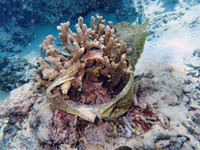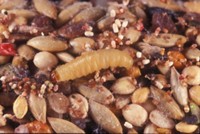Advertisement
Grab your lab coat. Let's get started
Welcome!
Welcome!
Create an account below to get 6 C&EN articles per month, receive newsletters and more - all free.
It seems this is your first time logging in online. Please enter the following information to continue.
As an ACS member you automatically get access to this site. All we need is few more details to create your reading experience.
Not you? Sign in with a different account.
Not you? Sign in with a different account.
ERROR 1
ERROR 1
ERROR 2
ERROR 2
ERROR 2
ERROR 2
ERROR 2
Password and Confirm password must match.
If you have an ACS member number, please enter it here so we can link this account to your membership. (optional)
ERROR 2
ACS values your privacy. By submitting your information, you are gaining access to C&EN and subscribing to our weekly newsletter. We use the information you provide to make your reading experience better, and we will never sell your data to third party members.
Environment
Plastic Waste Hosts Microbial Array
Some microbes living on plastic waste may help break down the materials
by Journal News and Community
June 24, 2013
| A version of this story appeared in
Volume 91, Issue 25
A surprising suite of microbial species colonizes plastic floating in the ocean and may speed the waste’s breakdown, according to a study (Environ. Sci. Technol. 2013, DOI: 10.1021/es401288x). Researchers, led by Linda A. Amaral-Zettler at the Marine Biological Laboratory and Tracy J. Mincer at Woods Hole Oceanographic Institution, analyzed plastic samples collected from the Atlantic Ocean. A centimeter-sized sample contained hundreds of microbial species distinct from those found in surrounding waters. Scanning electron micrographs show the bacteria lodged inside pits in the plastic. The team thinks that the bacteria eat into the polymers, weakening the pieces and possibly causing them to break down more quickly. Supporting this hypothesis, some of the plastic-burrowing bacteria are closely related to species known to consume other types of hydrocarbons, such as oil. Because plastic waste poses health risks to marine life, it would be promising to understand how microbes may break down plastics, says Michael Cunliffe of the Marine Biological Association of the U.K. But the process “needs to be shown in a bit more detail.”





Join the conversation
Contact the reporter
Submit a Letter to the Editor for publication
Engage with us on Twitter